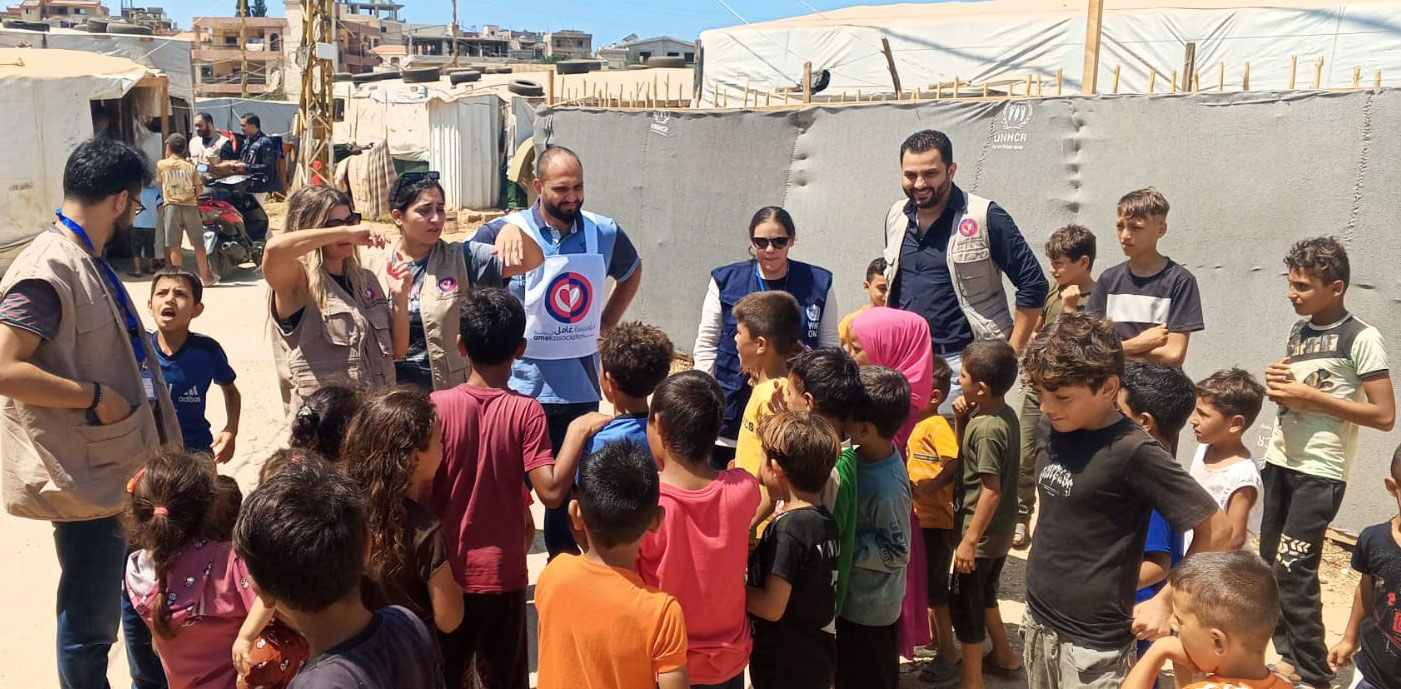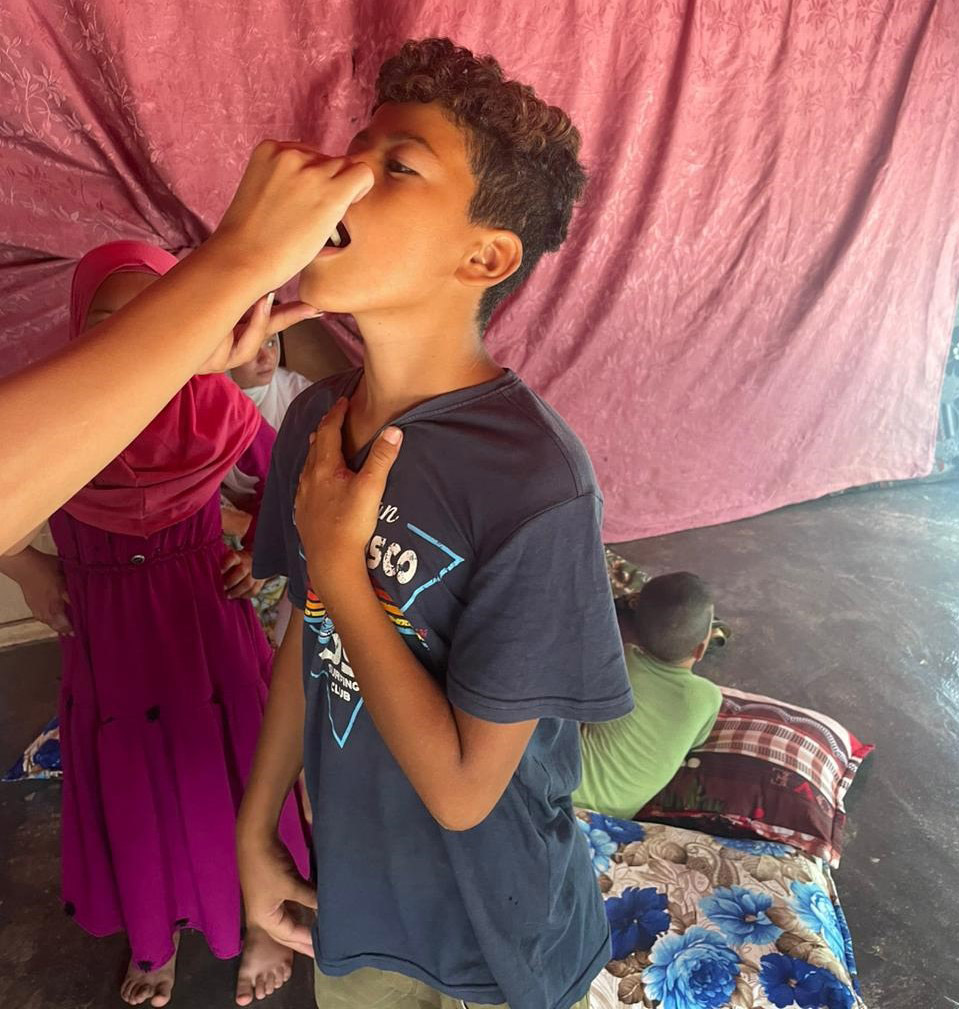 Children gather during the OCV vaccination campaign in Qolayaat, Akkar. Photo credit: WHO Lebanon23 UN Interagency Award for noncommunicable diseases prevention and control and mental health. Photo credit MOPH Lebanon.
Children gather during the OCV vaccination campaign in Qolayaat, Akkar. Photo credit: WHO Lebanon23 UN Interagency Award for noncommunicable diseases prevention and control and mental health. Photo credit MOPH Lebanon.
10 September 2024, Beirut, Lebanon – On 19 August, the Ministry of Public Health in Lebanon announced the launch of a preemptive oral cholera vaccination (OCV) campaign with the aim of preventing potential cholera outbreaks in high-risk areas. The campaign targets 350 000 individuals aged one year and above residing in high-risk areas in 5 out of Lebanon’s 8 governorates.
Expected to conclude mid-September, the campaign provides protection against cholera for people living in areas where there is limited access to safe drinking water and sanitation facilities, or in close proximity to neighbouring Syria where high movement flows between the 2 countries exacerbate the risk of cross-border disease spread.
In Mount Lebanon, Tripoli, Bekaa, Baalbeck and Akkar, 130 field teams have already administered more than 133 000 doses of vaccine.
Why preempt cholera?
 A boy is vaccinated at an informal tented settlement in Qolayaat, Akkar during the OCV vaccination campaign. Photo credit: WHO LebanonMost cholera cases present with mild or no symptoms, yet cholera has the potential to kill within hours if left untreated..
A boy is vaccinated at an informal tented settlement in Qolayaat, Akkar during the OCV vaccination campaign. Photo credit: WHO LebanonMost cholera cases present with mild or no symptoms, yet cholera has the potential to kill within hours if left untreated..
Joining forces with WHO and other humanitarian health partners, including UNHCR and UNICEF, the Ministry of Public Health conducted a comprehensive multisectoral risk-assessment ahead of the preemptive OCV campaign.
The challenging economic situation Lebanon faces has impacted multiple sectors, including water supplies and sanitation, severely compromising access to clean drinking water. Lebanon’s health system has faced major stresses which are now compounded by escalating hostilities along the country’s southern border. Attacks on health care facilities have caused serious damage to health infrastructure and contribute to population movement and displacement, heightening the risk of a cholera outbreak. Recent reductions in overall humanitarian funding have also negatively impacted service and health delivery across multiple sectors.
Oral cholera vaccines provide immunity against vibrio cholerae bacterium, reducing the likelihood of infection. One of the most effective prevention measures, OCV demand is high but global stocks and availability are limited. OCV campaigns must also be complemented by other preventive measures, including improving water quality and access, improving sanitation and promoting preventative hygiene practices.
How is WHO helping?
WHO Lebanon’s role in cholera prevention spans the full emergency response cycle, from planning and readiness to response and recovery. Working alongside our partners, WHO support focuses on:
strengthening and sustaining early warning surveillance systems for timely detection and response;
technical support to determine priority areas for multisectoral intervention;
ensuring trained staff are mobilized and retained;
enhancing laboratory testing capacity through the procurement of rapid diagnostic tests and laboratory reagents;
providing overall coordination and monitoring of the campaign; and
supporting health education campaigns in coordination with partners.
Community engagement to keep cholera at bay
The impact of cholera goes beyond the burden of disease and death and has socio-economic implications linked to lost productivity and income.
Because the OCV campaign requires a great deal of trust on the part of communities, special attention is being given to mobilizing community leaders and municipalities to disseminate awareness raising messages on vaccine safety and efficacy, increasing the rate of uptake and curbing the spread of rumours and misinformation.


